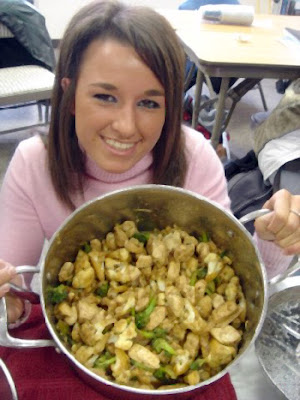Eliminating Waste in Practice: Dr. Tan's Eight Magic Points for All Digestive Disorders
By Lisajeanne Potyk, LAc
Acupuncture Today
December, 2005, Vol. 06, Issue 12
Most of the patients I see in my clinic suffer from a variety of digestive disorders. They do not effectively process their food. They have diarrhea, heartburn, and
acid reflux disease. They're nauseated.And who would expect any different? In this fast-paced, high-technology culture, we're overrun with time constraints and stressors of all kinds.People unaware of what a good diet consists of rely on processed fast foods and meats packed with hormones and antibiotics. In the West, we're overprescribed antibiotics and other medications; women are reeling from the side-effects of birth control pills; and we regularly take any of a myriad of anti-inflammatories for the slightest ache. It's no wonder so many people are experiencing internal disharmony. And if all of that wasn't enough, most people either don't know how to, or are afraid to, release their emotions. Opting for a sense of control, they "hold." And they get constipated.
The
digestive system is a mirror to how we process our external world on every level. Are we assimilating good nutritional, emotional and spiritual nourishment, and effectively eliminating what is toxic to us? Are we letting go of negative situations and allowing ourselves to be nurtured by positive ones? Without the foundation of a healthy, properly nourished body, we can't find the strength to feed into our emotions. If there's a backlog of undigested emotions, any digestive symptom can manifest. Once balance in the body is established by poor nutrition and digestive functions, we gain the platform to integrate our internal and external worlds.Traditional
Chinese medicine teaches us to properly diagnose and treat our patients using staid, ancient teachings recorded thousands of years ago. People don't change from century to century, but their circumstances do.
The environment, food, medications, and stressors affecting our patients are very different today, and since the disharmonies that cause them are rampant, digestive disorders are also rampant. Diagnosis and treatment according to the TCM model, written in (and for) a different time, can therefore be complicated and confusing.Now, imagine a group of acupuncture points that could be used to balance every kind of digestive disorder, including
irritable bowel syndrome, bloating,
ulcerative colitis, indigestion, and more. Imagine that the points are simple, easy to follow, and quite effective. There is no need to take the pulse, no need to consult a textbook, and no need to fumble through myriad causes. Wouldn't that be magic? It is, thanks to Dr. Teh Fu "Richard" Tan.
Dr. Tan has dedicated his life to experimenting with combinations of points, which are used with excellent clinical results, often instantaneously. Isn't that what we, as practitioners, want - to insert our needles, see an immediate change, and know our treatment is working? With the eight magic points, Dr. Tan offers the ability to elicit consistent, positive results.One could consult any number of the core books written on TCM theory, but isn't the practice of acupuncture - of healing - about how much better the patient feels after being treated? Better to learn the laws of acupuncture, become skilled at them through knowledge and discipline, and then break out into your own successful expression of them.
Dr. Tan's Eight Magic Points
nyctcm.edu, Dr. Tan's Eight Magic Points for Digestive Disorders, May 2010
You should read the whole article.





![Reblog this post [with Zemanta]](http://img.zemanta.com/reblog_e.png?x-id=1d183d3c-0314-47a7-b845-ef63dc4ff3f7)




